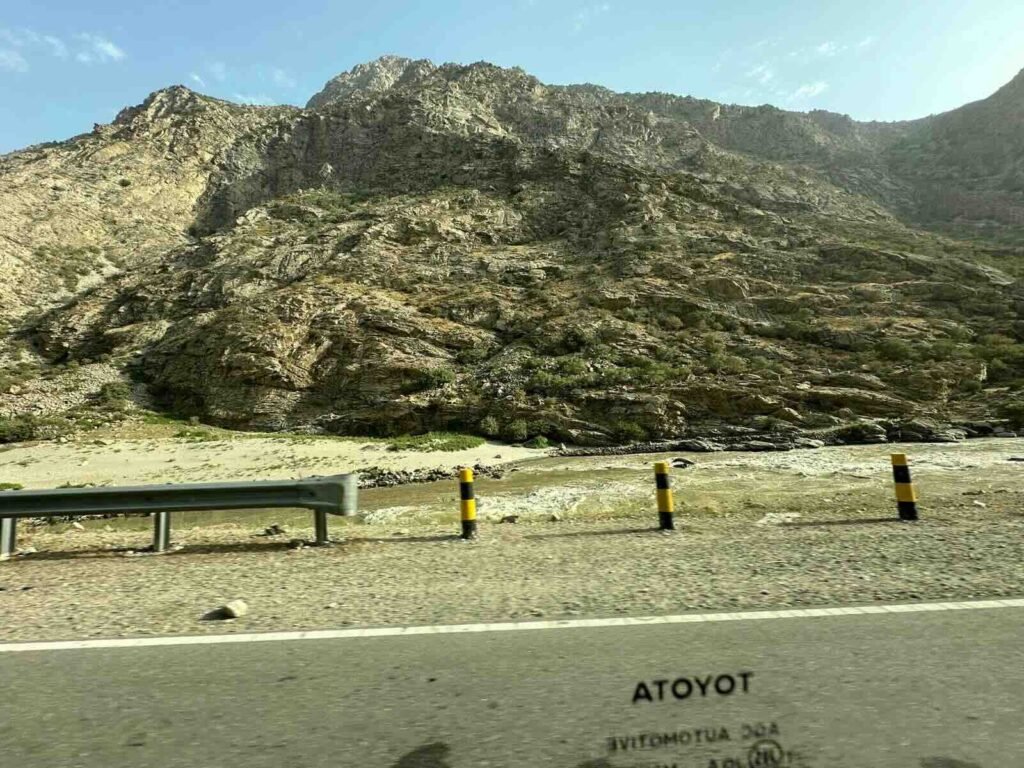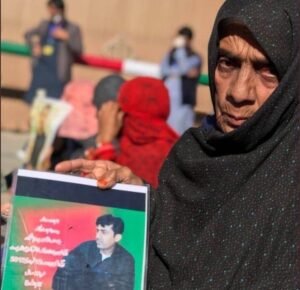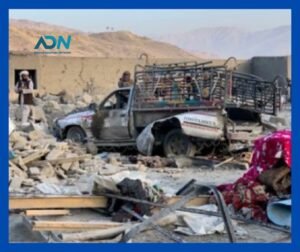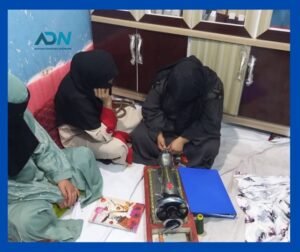Blasphemy Traps: Organized Groups Targeting Youth

Photo by @Gulistan for ADN
By Shabir Sadiq
In Pakistan, accusations of blasphemy can lead to swift, life-threatening consequences. Although the South Asian nation’s blasphemy laws were originally intended to protect religious sanctity, they have increasingly been misused by individuals and organized groups for personal, political, or economic gain.
One particularly alarming trend is the deliberate entrapment of vulnerable youths into blasphemy cases, orchestrated by what can only be described as a “blasphemy business.” These groups exploit the highly charged environment surrounding religious sensitivity to manipulate legal systems, silence critics, or settle personal scores, with little fear of repercussions.
According to an article published on Pakistan’s leading English daily the Dawn, last week the parents and relatives of youth, who are “languishing in jail” on charges of having posted and/or shared blasphemous content online, held a press conference in Islamabad where they called for the federal government to form an inquiry commission to investigate into the activities of the ‘blasphemy business group,’ that they claim had entrapped the youths in false cases.
The existence of ‘blasphemy business group’ is not a figment of their imagination or an attempt to shield the youths from consequences, the term originates from a report prepared by the special branch of Pakistan’s Punjab Police, where investigators accused such groups of “trapping” young people in blasphemy cases in an “organised manner”.
As per the Punjab Police’s special branch, this gang is the complainant in about 90 percent of such cases reported to and registered by the country’s Federal Investigation Agency (FIA) and the vast majority of those entrapped are Muslim boys and girls in their 20s or even younger, and who invariably hail from poor or lower-middle class families.
Several hundreds of these young people are languishing in jails across Pakistan, the Dawn reported, citing the Punjab Police’s report.
Pakistan’s blasphemy laws, notably Section 295-C of the Pakistan Penal Code, impose harsh punishments, including life imprisonment and the death penalty, for anyone found guilty of insulting Islam or the Prophet Muhammad. While these laws are ostensibly designed to maintain religious harmony, they have long been criticized for their broad and vague wording, which allows for widespread abuse.
The weaponization of these laws has led to a dangerous culture of fear. Even mere accusations, without evidence or proper investigation, can provoke mob violence, social ostracism, and extrajudicial killings.
Consequently, blasphemy laws have become a tool not just of religious zealots but also of those who wish to exploit the system for their own ends. In recent years, an insidious form of organized crime has taken root, wherein groups actively trap young people—typically from marginalized or vulnerable communities—into blasphemy accusations.
These networks function with the precision of a well-oiled machine, and their operations are increasingly sophisticated, often involving multiple actors, including community leaders, religious clerics, and even local law enforcement.
These groups often target youth for several reasons. Younger people, particularly those in lower socio-economic strata, are more vulnerable to manipulation. They are often less educated and more susceptible to falling into traps that involve religious sentiments.
Social media, which is widely used by Pakistani youth, has become a favoured hunting ground for these blasphemy business syndicates. These groups employ various methods to ensnare their targets.
One of the most common tactics is digital entrapment. Organized groups create fake social media profiles and engage in conversations with young people, often under the guise of friendship or shared religious beliefs. At some point in the conversation, the youth may be lured into commenting on or sharing something that can later be construed as blasphemous.
Once the trap is sprung, the group takes screenshots or records the offending material and disseminates it among local religious leaders or the wider community.
In some cases, they might deliberately escalate the situation by provoking outrage in mosques or local gatherings, inciting mobs to demand immediate action against the accused. The objective is to create an atmosphere of fear and chaos, making it nearly impossible for the victim to defend themselves.
In another method, false witnesses are coerced or paid to testify against the accused, further solidifying the blasphemy charge. In these scenarios, the police are often pressured into filing charges without proper investigation, and local courts are quick to act out of fear of mob violence.
These cases are frequently accompanied by public protests, and in the most extreme cases, mobs take matters into their own hands, attacking the accused or their families before any legal proceedings can even begin.
While religious zealotry might seem to be the primary motive behind such accusations, financial and political incentives are often the driving forces. In some cases, the blasphemy business is used as a tool for extortion.
After ensnaring a youth in a fabricated blasphemy case, the perpetrators demand money from the family or community in exchange for “dropping” the charges or intervening with local clerics to stop the public outcry.
Politically, these accusations can be used to eliminate rivals or gain leverage in local power dynamics. By falsely accusing someone of blasphemy, an individual or group can swiftly remove competitors from positions of influence or silence anyone posing a threat to their authority.
Furthermore, the blasphemy business can be used to manipulate land ownership or business disputes. Individuals seeking to gain control of property or a business will often accuse the current owners or their family members of blasphemy, forcing them to flee or be incarcerated, thereby seizing control. The consequences of this organized exploitation of blasphemy laws are devastating.
Victims of false blasphemy accusations face life-altering repercussions, including imprisonment, social ostracism, and, in extreme cases, death. Even when individuals are eventually acquitted or cleared of charges, the stigma associated with a blasphemy accusation often follows them and their families for life.
Moreover, the atmosphere of fear generated by these cases has a chilling effect on free speech and open discourse. In an environment where any perceived slight can be manipulated into a blasphemy case, individuals—especially the youth—are hesitant to express their views openly.
Social media interactions become fraught with danger, and public discourse on religious or political issues is stifled.
The manipulation of blasphemy laws also erodes trust in Pakistan’s legal system. When laws are used as tools for personal gain rather than justice, faith in the judiciary diminishes.
Victims often do not receive fair trials, as the threat of mob violence puts immense pressure on courts and law enforcement to act quickly and harshly, regardless of the validity of the charges.
Human rights organizations, both within and outside of Pakistan, have repeatedly called for reforms to the country’s blasphemy laws. Critics argue that the laws must be narrowed and clarified to prevent misuse, and that greater protections must be put in place for those accused of blasphemy.
However, efforts to reform these laws have faced stiff resistance from religious and political groups, who argue that any changes to the laws would be an affront to Islamic principles.
This resistance has made meaningful reform difficult, despite the growing evidence of widespread abuse.
The rise of organized groups exploiting Pakistan’s blasphemy laws for personal and financial gain represents a dangerous development in an already fraught environment.
By deliberately entrapping young people in blasphemy cases, these groups are not only ruining lives but also contributing to a culture of fear and mistrust that undermines social cohesion and justice.
Shabir Sadiq is a researcher specializing in Pakistan’s education system.
Note: The contents of the article are of sole responsibility of the author. Afghan Diaspora Network will not be responsible for any inaccurate or incorrect statement in the articles.










